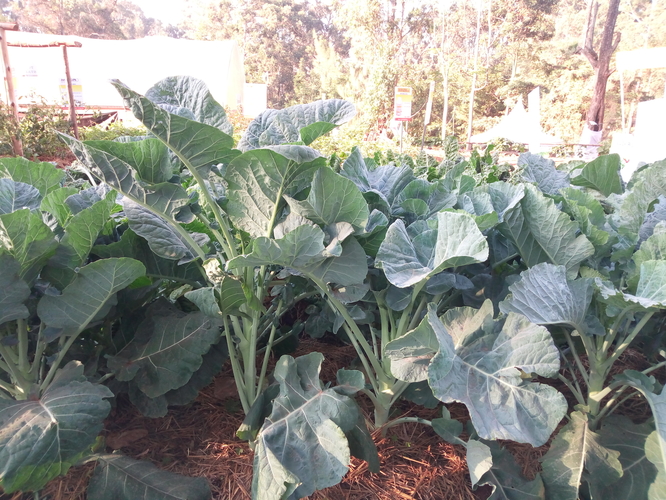
Part of Mwambigu's kales farm at Taita-Taveta. Photo courtesy.
After being edged out of bodaboda riding business due to competition towards the end of 2018, Jasper Mwambigu saw another opportunity in irrigation to supply vegetables for the market ahead as drought-ravaged crops across the country.
The 25-year-old Taita-Taveta farmer piped water from nearby Kisenyi Dam, which had been desilted a few months earlier after Deputy President William Ruto visited the area on August 2016.
“I knew vegetables could be on-demand starting January ahead of the long rains in March to June. My kales and spinach taught me that farming is a fulltime job that can turn round my life without going to urban areas in search of formal employment,” he said.
RELATED CONTENT: Seed company launches kales variety which is best for ulcer patients
From the about half an acre piece, the farmer realised between Sh30,000 and Sh40,000 between January and April, with most of his kales and spinach selling at Mombasa’s Kongowea Market.
He harvested twice a week.
From November 2018 to around April 2019, a bag of 60kg of sukumawiki rose from Sh700 to Sh2,500 in most towns in Kenya.
RELATED CONTENT: Production of Kales (Sukuma wiki) and Onions Using Bucket Drip Irrigation
Mwambingu sold the same bag between Sh1,700 to Sh2,000 depending the spinach also ranged within the same price.
The farmer attributes his success to the Kisenyi Dam, which has turned the semi-arid land in Taita Taveta into an oasis of plenty.
The dam, which is about 50,000m3 in capacity, was diminishing as a result of silt deposits. But the cleanup has given the water reservoir, which serves more than 12,000 residents of Wundanyi Sub County and its neighbourhood.
RELATED CONTENT: Cabbages, kales and tomatoes earns graduate Sh120,000 in profits in three months
Although it relies on rain to fill to capacity, underground rivers also deliver water to the dam. Even in the absence of rain, the dam still has water, although the levels are lower.
The farmer is also bringing in peas and French beans into his cultivation.
















Comments powered by CComment